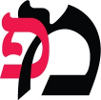Presentation
Exegesis and scriptural commentary are at the heart of Jewish, Christian, and Muslims traditions. Evolving in all three Abrahamic faiths as a multifaceted practice—at once social, devotional, intellectual, creative, and educational—exegesis constituted an essential aspect of expression and belief. At the same time, because it dealt with issues such as the shape of the canon, the limits of acceptable interpretation, and the meaning of salvation history from the perspective of faith, exegesis was often elaborated along the fault-lines of inter-confessional disputation and polemical conflict.
This conference will explore the nature of medieval exegesis as an interfaith discourse in all three traditions during the High and especially the Late Middle Ages (roughly from the 11th to the 15th Centuries), paying particular attention to the exegetical production of scholars in the Western Mediterranean. Seeking to move beyond the best-known and most obvious examples of interfaith exegesis, this conference seeks to explore the following questions: Who was reading exegesis from other faith traditions? In what contexts did exegetes collaborate across confessional divisions? Was the interfaith discourse of medieval exegetes always a polemical discourse, or was there also a counter-tradition of “irenical” exegesis? How did the practical and technical demands of reading foreign scriptures and commentaries affect exegetes’ views and traditions? In what way did exegetical practice “essentialize” or “de-essentialize” their practitioners? How did individual exegetes working with foreign commentaries negotiate their relationship with the larger traditions to which they themselves belonged? How did these issues manifest themselves in the physical practice of manuscript preparation and copying or in the subsequent impact and dissemination of such copies?
In exploring these questions, the participants will address the relations between commentary, polemic, dialogue, and scholarship across and within the boundaries of Jewish, Christian, and Muslim scriptural interpretation. They will look at the nature of exegesis in the late-medieval Western Mediterranean in contrast to the robust earlier traditions of exegesis before the 11th century and also to the abundant exegetical traditions that continue to develop further north after the fifteenth century.
ORGANIZER: Ryan Szpiech
INTELEG Project






